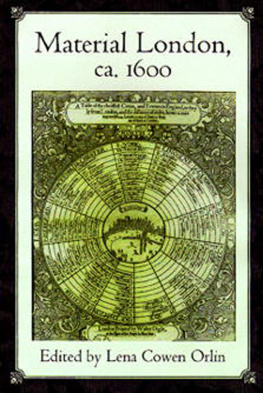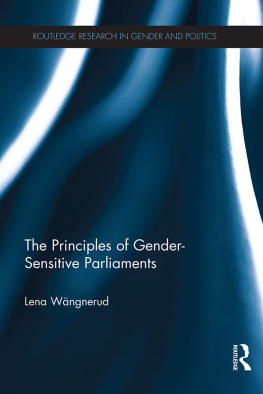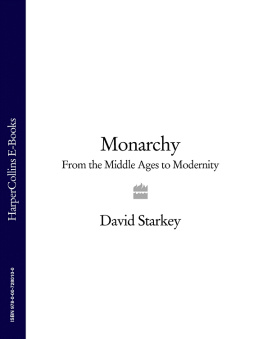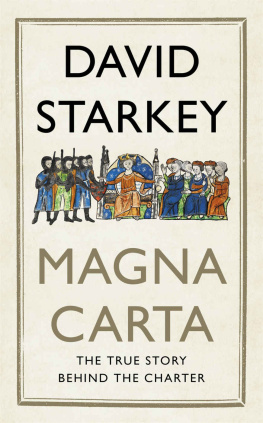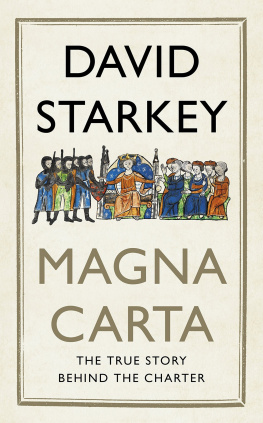This edition is published by Papamoa Press www.pp-publishing.com
To join our mailing list for new titles or for issues with our books papamoapress@gmail.com
Or on Facebook
Text originally published in 1955 under the same title.
Papamoa Press 2018, all rights reserved. No part of this publication may be reproduced, stored in a retrieval system or transmitted by any means, electrical, mechanical or otherwise without the written permission of the copyright holder.
Publishers Note
Although in most cases we have retained the Authors original spelling and grammar to authentically reproduce the work of the Author and the original intent of such material, some additional notes and clarifications have been added for the modern readers benefit.
We have also made every effort to include all maps and illustrations of the original edition the limitations of formatting do not allow of including larger maps, we will upload as many of these maps as possible.
A LITTLE REBELLION
BY
MARION L. STARKEY
ACKNOWLEDGMENTS
MY THANKS TO the many kind people in assorted libraries and archivesand one jailwho helped me in my research.
These include the entire staff of the Massachusetts Archives at the State House in Boston; many of the staff of the Boston Athenaeum, the Massachusetts Historical Society, the Boston Public Library, the Records of the Massachusetts Supreme Judicial Court, the Old State House in Boston, the Widener Library at Harvard University, the Library of the College of Liberal Arts at Boston University, the Forbes Library in Northampton, the Hampshire County Courthouse, the Berkshire Athenaeum in Pittsfield, the Manuscript Room in the New York Public Library, the National Archives and the Congressional Library in Washington, the Vermont Historical Society in Montpelier, Vermont.
The jail is the House of Correction in Northampton, whose attendants, rummaging in the vaults, discovered for me forgotten jail and debtors-prison records kept at the time of Shays Rebellion.
My thanks to farmers in and about Williamstown, Vermont, who sketched out for me the details of old-time farm life and the enduring nature of farm problems, and gave me points on how they would have behaved if they had been faced with the problems that roused Daniel Shays; to those people of Pelham, Massachusetts, who talked over with me the traditions of Shays (they are proud of him) and the special difficulties of farming in the Pelham hills; to the Trailways bus-drivers who obligingly picked me up and put me down at unscheduled stops in Shays country.
Now to particularize.
Everyone who works in the Massachusetts Archives gets help amounting to collaboration from Leo Flaherty, Senior Archives Assistant, who not only knows his records, but has the ingenuity of Detective Sergeant Friday in running down an obscure source.
Sidney Kaplan of the University of Massachusetts, himself the author of many valuable monographs on Shays Rebellion, generously opened his massive notes to me; Dr. Robert E. Moody, of Boston University, was always available for a consultation; Frank W. Grinnell, secretary of the Massachusetts Bar Association, gave me materials and advice on legal problems; Joseph B. Berryusually consulted at that charming institution, tea at the Boston Athenaeumeither knew the answer to every historical conundrum that perplexed me or the most likely source in which to seek it. W. Kay Lamb, Dominion Archivist at the Public Archives of Canada, checked for me the record of Shays flight to Canada. Mrs. William L. Tisdel dug up the records of Shays residence in New York State and took me on a grand tour of Shays country; Mrs. Harvey L. Gray guided us to historical points of the Springfield area; Mrs. William A. Berridge to the battlefield in lovely South Egremont. Mrs. Florence S. Cummings entrusted me with relevant details from her own historical collections.
I am grateful to the John Simon Guggenheim Memorial Foundation for making it possible for me to have a free year for my research, and to the University of Connecticut for giving me time off for the purpose. I am indebted to my editor, Harold Strauss, for his patience in helping me shape an exceedingly rough first draft into more graceful form; to Laurence L. Winship of the Boston Globe, who also read the manuscript at its most awkward stage and gave sound advice on its reconstruction.
I am indebted for all manner of aid and comfort to Bernard and Avis De Voto, to Malcolm S. and Marion MacLean, to E. A. Laycock, August Heckscher, John K. Hutchens, to Francis and Lillian Irons, to Dr. Odell Shepard, Dr. Donald Derby, William Towner, and Dorothy Canfield Fisher.
And I owe not the least to the friend who gave me loyal companionship during the long and lonely task of writing, my cat Cherokee.
PROLOGUEUnterribly in Massachusetts
Since it is no secret that wars and revolutions seldom settle anything, the founding fathers of the republic should have been less startled than they were when shortly after the close of the American Revolution, in Massachusetts the minutemen marched again.
It happened in 1786. For the second time in a decade, the conch shells sounded on the village greens and the minutemen marched; they were not only animated by the same spirit that had impelled them on the road to Lexington, but many of them were the same men. They were supported by much of the old revolutionary paraphernalia: county conventions, committees of correspondence, resolutions solemnly taken. But this time they marched without the blessing of Boston, which in their eyes had replaced Britain as the Enemy. And they did not have the old leadership. Those men who so short a time ago had assured them that such conduct was logical, virtuous, and nobly patriotic now looked on aghast. George Washington wrung his hands and faced the fact that his dream of retiring to the placid obscurity of a country gentleman was premature; unfinished business demanded his attention. Sam Adams, who so recently had been at such pains to rouse them to a proper revolutionary pitch, looked on with something of the affront of an impresario who sees his epic production plagiarized by amateurs and received by the gross masses with even more enthusiasm than the original had been.
Of all the leaders of the earlier revolution, only Thomas Jefferson expressed anything like approval. A little rebellion now and then, he remarked, is a good thing for a republic; but Jefferson, being in Paris, was at too far a remove to influence the course of events. The rebels never even heard that he was for them.
Those of the founding fathers who were closer to the event, particularly authorities in Massachusetts, believed that a government which must be sparked by a series of rebellions, little or otherwise, is no better than anarchy. Accordingly, they set out to suppress this one. In their fright they were perhaps not entirely intelligent about it; careful scrutiny of the conduct of our illustrious forefathers sometimes gives grounds for suspicion that they were not always much brighter than we are. Thanks largely to a certain obtuseness in their outlook, what at first could be dismissed as mere commotions presently had to be recognized as rebellion, and finally the harassed commonwealth of Massachusetts declared itself in a state of war.





